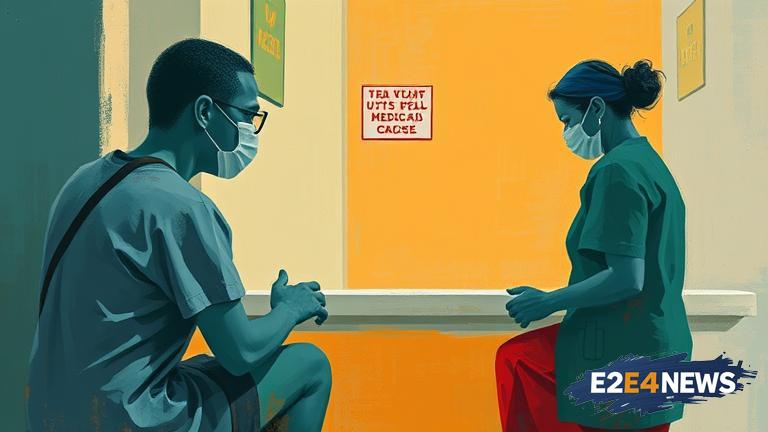The latest Medicaid cuts have sparked widespread concern among healthcare advocates and low-income communities, as they stand to lose crucial access to medical care. Medicaid, a joint federal-state program, provides health coverage to over 70 million Americans, including children, pregnant women, parents, and individuals with disabilities. The cuts, which aim to reduce government spending, will disproportionately affect vulnerable populations who rely heavily on Medicaid for their healthcare needs. Many of these individuals and families will be forced to choose between paying for essential medical care or basic necessities like food and housing. The consequences of these cuts will be far-reaching, with potential long-term effects on the health and wellbeing of those affected. Low-income individuals, in particular, will struggle to access preventive care, chronic disease management, and mental health services. This may lead to a surge in emergency room visits, hospitalizations, and other costly healthcare interventions. Furthermore, the cuts will also impact healthcare providers, who may see a significant reduction in reimbursement rates for Medicaid services. This could lead to a decrease in the number of providers willing to accept Medicaid patients, exacerbating the existing shortage of healthcare professionals in underserved areas. The Medicaid cuts have been met with fierce opposition from healthcare advocates, who argue that they will only serve to widen the existing healthcare disparities in the United States. These advocates point to the fact that Medicaid has been shown to improve health outcomes, reduce mortality rates, and enhance overall quality of life for its beneficiaries. In contrast, the cuts will likely have a devastating impact on public health, particularly in rural and underserved communities where access to healthcare is already limited. The federal government has been criticized for its role in implementing the cuts, with many arguing that they will only serve to further entrench existing health inequalities. As the situation continues to unfold, it remains to be seen how the Medicaid cuts will be implemented and what measures will be taken to mitigate their effects. In the meantime, healthcare advocates and community leaders are urging policymakers to reconsider the cuts and work towards finding alternative solutions that prioritize the healthcare needs of vulnerable populations. The Medicaid cuts have also sparked a broader debate about the role of government in ensuring access to healthcare for all citizens. While some argue that the cuts are necessary to reduce government spending, others contend that they will only serve to shift the burden of healthcare costs onto already struggling individuals and families. As the healthcare landscape continues to evolve, it is clear that the Medicaid cuts will have far-reaching consequences for low-income communities and the healthcare system as a whole. The cuts will also have significant implications for the economy, as a lack of access to healthcare can lead to reduced productivity, increased absenteeism, and other negative economic outcomes. In addition, the cuts may also lead to a surge in medical bankruptcies, as individuals and families are forced to take on crippling medical debt. The situation is particularly dire for individuals with chronic conditions, who rely on Medicaid for access to life-saving medications and treatments. Without access to these essential services, many will be forced to go without the care they need, putting their health and wellbeing at risk. The Medicaid cuts have also raised concerns about the potential for increased mortality rates, as individuals and families are forced to forgo essential medical care. This is particularly concerning in light of the existing healthcare disparities in the United States, which already result in significant differences in health outcomes for low-income and minority populations. As policymakers continue to grapple with the challenges of healthcare reform, it is clear that the Medicaid cuts will be a major obstacle to overcome. The cuts have sparked a national conversation about the importance of access to healthcare, and the need for policymakers to prioritize the healthcare needs of vulnerable populations. Ultimately, the Medicaid cuts will have significant and far-reaching consequences for low-income communities, healthcare providers, and the healthcare system as a whole. It is imperative that policymakers take immediate action to address the crisis and ensure that all individuals have access to the healthcare services they need to thrive.





